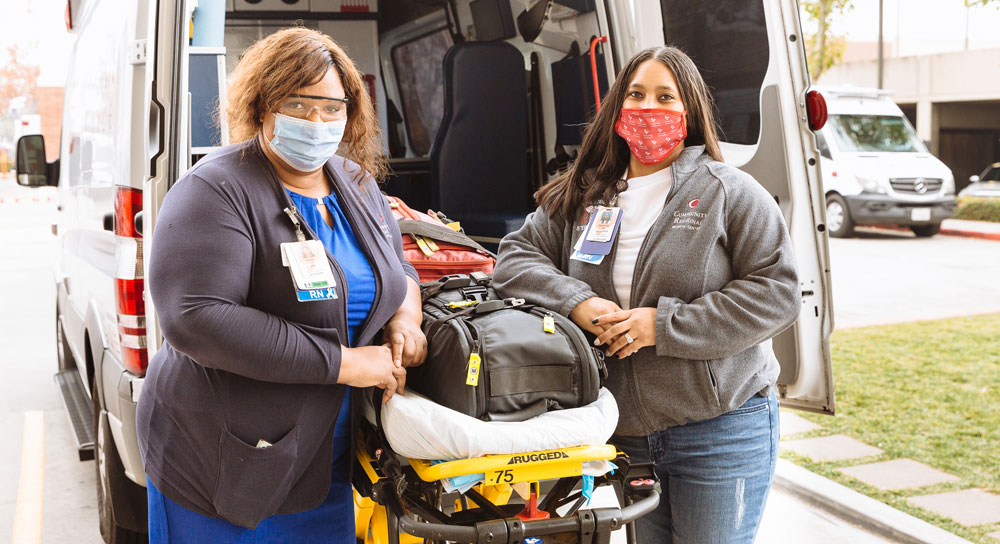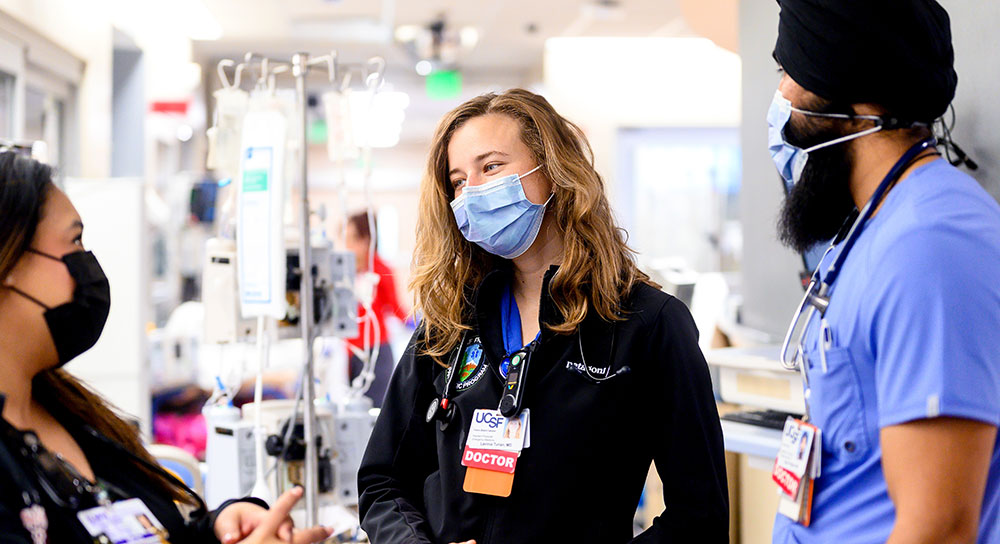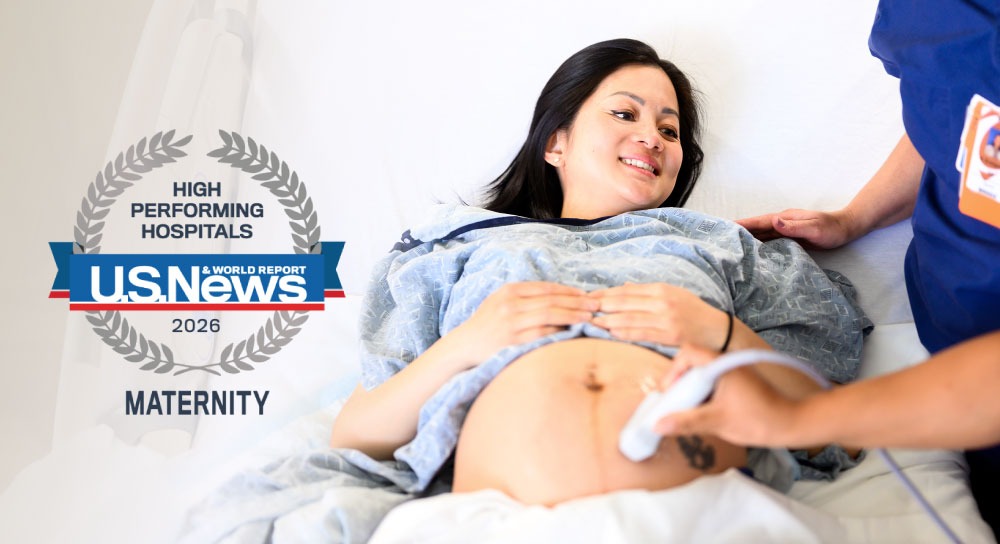Veteran emergency department Nurse Karen Reid-Williams was at the end of a long shift, squinting through fogged-up goggles and sweating under her N95 mask and paper gown, when another nurse approached and asked her to talk to an uncooperative patient. And maybe do a forensic exam, if it was warranted.
Reid-Williams looked at the woman, who seemed under the influence of drugs, thrashing on a bed. Her first thought was it seemed pointless to even try to get a consent for such an exam in the patient’s current condition. But Nurse Stephanie Moultrie was insistent something was wrong and needed looking into — despite a police officer’s assessment that this was a simple drug overdose case.
At Community Medical Centers’ downtown trauma center and busy emergency room, nurses have learned to take second looks at patients, listen deeply for what’s being said — and not said — and to have a sixth sense about unseen traumas. Reid-Williams, who heads Community’s SAFE (Sexual Assault Forensic Exam) Program, said she’s learned to trust those instincts in her fellow nurses.
On this night those instincts helped her gather evidence of a domestic rape and ensure the patient was discharged safely to another family member, rather than the suspected perpetrator who was waiting just outside the emergency room.
“During the exam, the perpetrator called and the patient put it on speakerphone,” Reid-Williams described. “I overheard some key words the perpetrator said to the patient and realized this patient was scared to go home and he was outside the hospital waiting for her. Just the way he said things made me feel like something was crawling up my back. I wrote on a piece of paper: ‘Are you scared to go with him?’ She nodded and confirmed my thoughts.”
Thinking quickly, Reid-Williams told the patient, in a voice loud enough to be overheard on the other end of the phone, that it would likely be hours before she was discharged because she needed to be able to eat and walk without assistance first. That bought the care team time to connect with a relative and arrange for discharge on another side of the hospital.
“I get emotional thinking about this,” Reid-Williams said. “I almost dismissed an opportunity to make a difference. But I was in the right place at the right time.”
Providing Fresno County’s only hospital-based Sexual Assault Forensic Exam team
Community Regional Medical Center’s emergency department provides Fresno County’s only round-the-clock, in-hospital testing and examinations for sexual assault and rape victims. Twelve specially-trained nurses collect, preserve and securely store evidence collected from adult and child victims, and from suspects under police custody. Community Regional’s SAFE nurses also serve as expert court witnesses.
In conjunction with the Children’s Health Center, located on the Community Regional campus, SAFE staff provide follow-up evaluations for child victims of sexual abuse and help connect victims and their families to counseling services.
During fiscal year 2020, Community’s SAFE nurses provided assistance to 109 patients, working more than 8,000 hours collectively on-call or caring for patients. Reid-Williams said while typically the hospital gets about 10 cases a month, she’s had nights where she’s done up to five exams for police and sheriff’s deputies.
Formalized sexual assault forensic medicine began in 1985 in California with requirements that law enforcement have trained healthcare providers help collect evidence in sexual assault cases. Community began providing such exams in 1998 and also helped connect victims to counseling. It wasn’t until 2015 that laws required each California county to have a sexual assault response team (SART). Community’s nurses provide a key component of Fresno County’s response team, helping improve sexual assault interventions for victims.
“Our nurses and doctors here do a great job of reporting and advocating for patients,” said Reid-Williams, who has been part of the Community SAFE program for 12 years. “I’m proud of this program. I network with a lot of hospitals around the state who are just starting up a SAFE program. I love the fact that we offer this service.”
The SAFE program is part of the community benefit work the non-profit hospital system does annually as the Valley’s safety net healthcare provider. These efforts are part of the healthcare system’s commitment to injury and violence prevention, a top identified health need in a 2019 assessment by local hospitals.
In fiscal year 2020, Community invested $175 million — about 10% of its operations budget — on medical education, public education, unreimbursed medical and charity care and providing access to such things as forensic exams to help victims and local law enforcement.
Community is committed to improving the health of our region. That promise includes reaching outside our hospitals and clinics to partner with others on factors that affect wellness, prevention and recovery.
Respect, understanding key to getting evidence that makes a difference
Reid-Williams said typically a forensic exam includes collection of swabs and samples and a genital exam that can re-traumatize patients, so it takes training and a special understanding to do it with respect and compassion. “One of my victims said I made it seem like a normal thing,” Reid-Williams said. “I apologized. She said, ‘No it’s okay because that made me feel comfortable.’”
Reid-Williams takes care and trains other nurses to ask just enough questions to establish what happened, but not so many as to make patients relive the traumatizing details of the assault. She also over explains at every step what she’s going to do, why she must be so invasive and why she might need to take photos.
“You have to have thick skin to do this. And we’re trained to have a poker face. We also have to listen carefully to what they’re saying and validate them,” Reid-Williams explained.
Moultrie, the nurse who insisted Reid-Williams examine the thrashing patient, had listened to the patient’s refusal to provide a urine sample and suspected an assault. Reid-Williams said the woman, who told police she’d gotten bad drugs and who refused to cooperate, was suddenly sober and coherent and talking once she was alone with Reid-Williams in a safer space to talk.
“She looked up at me while I was taking blood from her and she just said, ‘Thank you.’ I asked her, ‘For what? For sticking you?’” Reid-Williams described her encounter. “She said, ‘No for listening to me.’”
Reid-Williams said she felt like she should thank her patient for reminding her why she continues her SAFE role and nights on-call. “With some of these patients when you let them go you wonder if they’ll be safe,” Reid-Williams said. This night Reid-Williams knew. “I felt like I had a purpose.”





